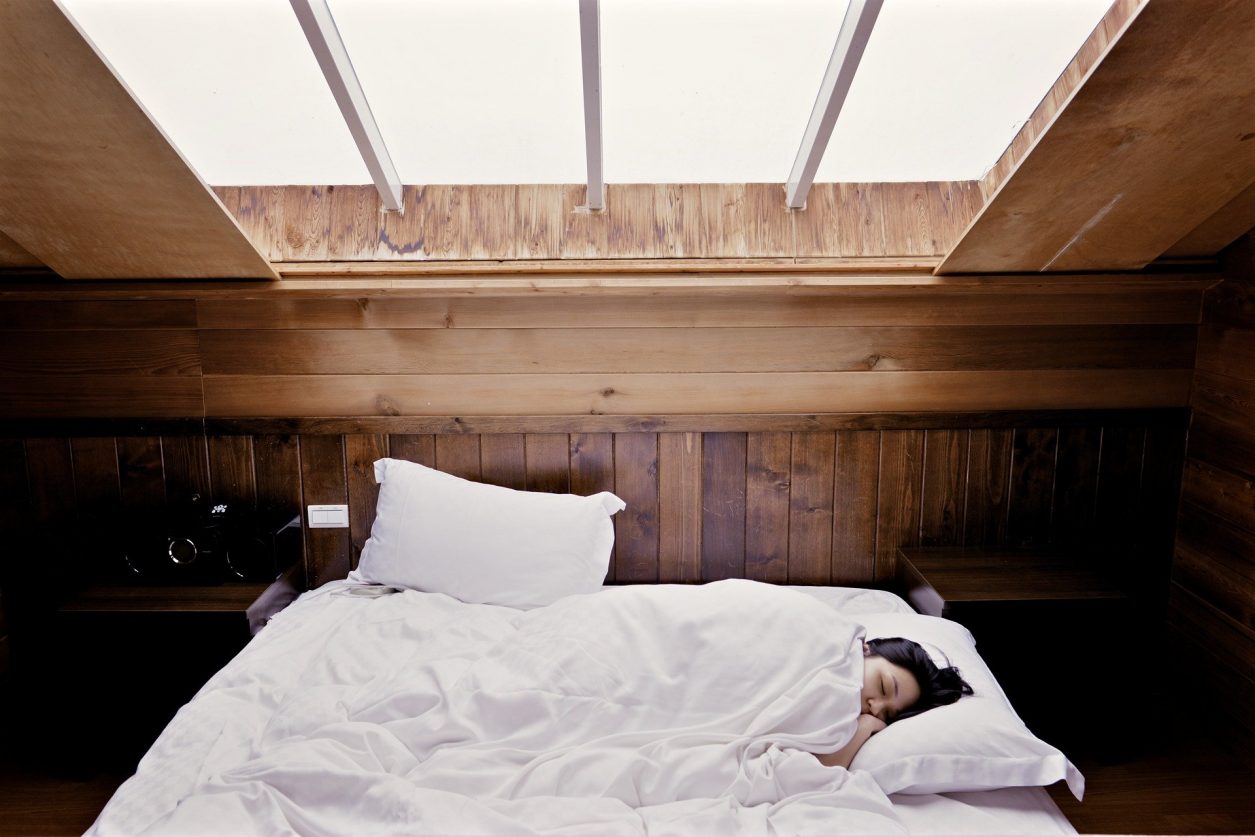
There are few things as cosy as curling up in a duvet or fluffy blanket when it’s wet and windy outside. Add in the darker nights of winter, the temptation is real! The trouble is, if we give in and have a little nap, it can mess with our sleep patterns and circadian rhythms. Bear in mind these are already out of sync due to the lack of sunshine. To help you stay snug and sleep well, here are a few tips and things to remember:
- Sleep Science: Melatonin and your Circadian Rhythm
- Learn how to fix your sleep cycle in winter
- Sleep well tips
Read on to sort your cycle and get a good winter night’s sleep…
Sleep science: Melatonin and your circadian rhythm
-
What is your circadian rhythm?
Your circadian rhythm is your body clock. It uses your immediate environment to maintain a 24-hour sleep/waking cycle. Its purpose is to control the signals that get sent around your body to initiate the release of sleep and waking hormones.
-
What is melatonin?
Melatonin is the hormone that is release to tell us to go to sleep.
The idea is that when it’s bright and light outside, our rhythm tells our bodies to wake up and enjoy the day. Then when it gets dark it signals the body to release the sleep hormone – melatonin – for bedtime.
The Sleep Foundation says, “When properly aligned, a circadian rhythm can promote consistent and restorative sleep. But when this circadian rhythm is thrown off, it can create significant sleeping problems, including insomnia.” So that’s why in winter when it’s darker earlier on, we want to sleep more. It’s our circadian rhythm getting confused by the darker nights and signalling for melatonin too soon.
Learn how to fix your sleep cycle in winter
Learning to improve your REM sleep and your cycle shouldn’t take much time. And (in normal circumstances) you won’t need any medical assistance or prescriptions. Although, some do find natural sleep aids such as lavender and valerian root helpful.
The most basic thing you can try is to get into a routine – and stick to it:
- Even if you’re yawning at 6 pm, don’t fall into the nap trap.
- Aim to sleep and wake up at the same time every day.
- Small lies in of around an hour on the weekends shouldn’t affect your cycle too negatively.
- Winding down is important.
- Come off your phone, tablet or computer at least an hour before bed – the blue light they give off can confuse your circadian rhythm.
- Try to get your full NHS-recommended eight hours a night.
But there are other things you can do to sleep well – read on to find out some more.
Sleep well tips
Get some sunshine in your life
Not fluorescent light, not artificial light, we mean outside light – even if it’s weak you should expose your skin to it to keep your sleep-wake cycle running as it should. So, get out on your lunch break for a walk to buy lunch, or take a 10-minute walk down the road just for the sake of it. Even doing a little maintenance in the garden can help. If you really don’t want to go outside, then you could try a lightbox or SAD alarm clock – these gently lighten up at the time specified to mimic the sun rising.
Make an ideal sleep environment
Keep the room temperate – not too hot and not too cold – 16-18°C is recommended by The Sleep Council for a restful night’s sleep. And we don’t just mean the air temperature – make sure you’ve got the right duvet thickness and material too:
- Choose 4 – 10 tog for spring and summer
- Choose 10.5 tog and up for autumn and winter
- Go for goose down or feather filling for natural heat retention
- Pick hollow-fibre for something more hypoallergenic and sensitive.
All of them have benefits and specifics, so make sure you choose one you which suits your situation.
Resist the nap trap
There is no such thing as catching up on your sleep – it’s a myth. And even though the weather has gone grey, cold and miserable, you should still wake up at the same time and keep that cycle right. Feel free to luxuriate in your cocoon of warmth once you’ve woken up. Maybe have breakfast in bed or enjoy a few chapters of your book all snug in your duvet. But remember, if you do indulge in a few extra hours sleep here and there, it won’t help in the long-term and can throw off your rhythm…is it worth it?
Don’t eat late at night
As part of your wind-down, you should cut off eating at a certain time before bed. Your whole body needs to calm down after all, including your metabolism. You can enjoy your casseroles and soups during the day to get all warm inside, and a few festive choccies here and there are a nice treat too but don’t overdo it and let your body completely calm down and relax for bed.
Last but not least, remember to exercise
It may be winter, but it’s also the season of chocolate and cheese. Maintaining your exercise routine not only keeps off the extra pounds, but it also gets you out and into the sun, (remember we said that was important?) and is brilliant for your mental health. As well as that, it’s been prescribed to help improve insomnia for years – as long as you do it at the right time.
So, you see, a good night’s sleep doesn’t need to be elusive, and there are loads of ways to sleep well and improve your circadian rhythm. You’ve just got to have the will power to try.







